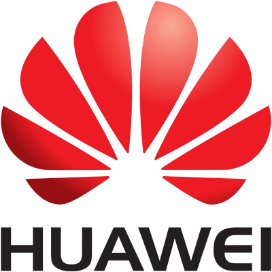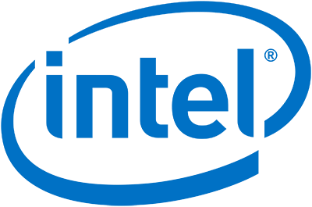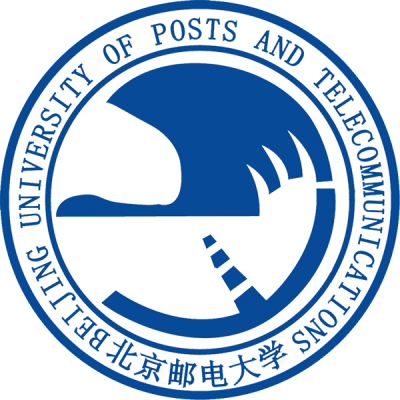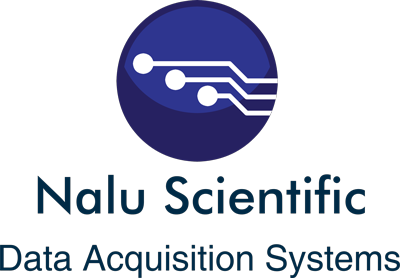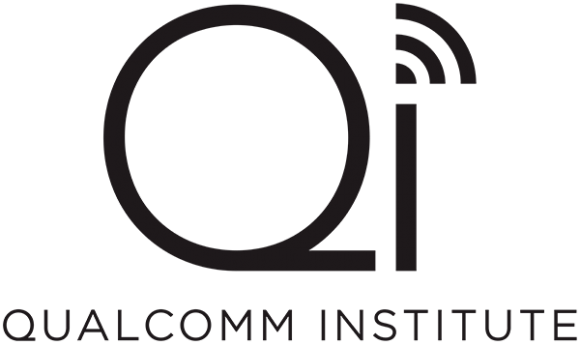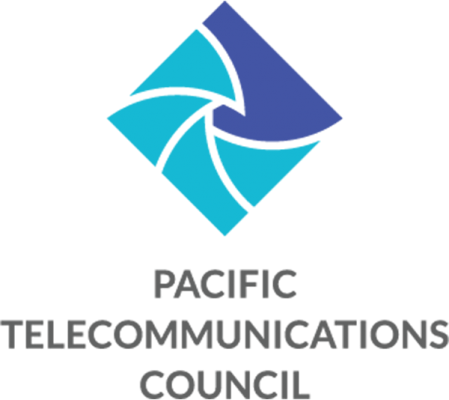Back to Industry Program Page >>
Monday, 9 December 2019
09:00-16:00
Industry Training 4 (IT-04): IEEE Leading Technical Teams
Part 1 of 2: One-hour webinar: IEEE LEADING TECHNICAL TEAMS (Pre-Workshop Program)
Part 2 of 2: IEEE LEADING TECHNICAL TEAMS (GLOBECOM 2019 Industry Training (IT-04))
09:00-12:30
Industry Training 2 (IT-02): Emerging 5G Optics Interface and Connectivity Technologies
14:00-17:30
Industry Training 3 (IT-03): Young Engineers & Scientists Initiative (i-YES) Education Track
Friday, 13 Dec 2019
09:00-17:30
Industry Training 5 (IT-05): Internet of Things oneM2M Training for Developers
Industry Training 1 (IT-01): Software Defined Networking and Network Function Virtualization Training with Mininet and Docker
Date/Time: Monday, 9 Dec 2019, 09:00 – 17:30
Room: Marriott, Paniolo 1
Presenters:
- Dr. Fabrizio Granelli, Associate Professor, Dept. of Information Engineering and Computer Science, University of Trento, Italy
- Dr. Frank Fitzek, Professor, Communication Networks Group, Technische Universität Dresden, Germany
- Dr. Sebastian Rettlinger, Researcher, Magna Telemotive GmbH, Germany
- Juan Cabrera and Sreekrishna Pandi, TU Dresden, Germany
Abstract: The training session is aimed at providing to the attendees’ practical skills in SDN and NFV, which are at the basis of several emerging paradigms, like 5G, MEC, etc.
All attendees will be able to participate to the hands-on activities and learn practical skills directly during the session by using their own laptops, since the software to use will be provided beforehand in the form of Virtual Machines – therefore only requiring users to run a proper virtualization environment (such as VirtualBox, freely available on the web), and avoiding compatibility / installation problems.
Indeed, most of the training session will be performed using open-source and freely available software tools to experiment with. Basically, attendees will be advised beforehand about the software to download and install (mostly Virtual Machines, therefore compatible with all platforms), so that they will be ready to participate to the hands-on experience. Such practical sessions will be explored step-by-step by the instructors as well as deeply documented through provided material (copy of the slides, websites, etc.).
Selected tools will include mininet and docker environments, that will enable (i) to build and run virtual network topologies, virtual switches and hosts, as well as actual services and (ii) to build, manage and operate NFV, respectively. Moreover, additional software will be used, such as OpenFlow controllers and other packages to build docker containers.
Instructions for the attendees will be provided through the following URL some days before IEEE Globecom 2019: https://bitbucket.org/granelli/sdn-training/
Periodically during the training session, the speakers will stop and ask questions or suggest exercises to the attendees in order to make the session as interactive and lively as possible.
The technical issues addressed by the tutorial will include:
- A brief introduction to recap the basic concepts of SDN and NFV;
- Software Defined Networking: the first topic to be addressed will be SDN, and especially OpenFlow as a practical example of an approach to implement SDN. Through the usage of a network emulator, attendees will first learn how to build proper topologies and instantiate hosts and switches, and then how to connect them to the controller using OF protocol to control the behavior of the network. After some basic exercises to analyze traffic and performance and learn OpenFlow through practical examples and scenarios, the session will focus on two advanced topics: (a) how to implement QoS using virtual OF queues on a switch; (b) how to slice an OF network using flowvisor/OpenVirteX and how to allocate traffic to each slice;
- Network Function Virtualization: the second part of the session will introduce the docker environment as a common framework to build Network Functions. The basic commands to build and run docker containers will be first reviewed, and then the training will focus on more advanced subjects, starting from monitoring and migrating docker containers and NFs to using dockers to support Mobile Edge Computing functionalities;
- Conclusions, discussion and homework activities: the speakers will leave additional time for questions for the audience as well as to provide additional material and links to further experiments.
IMPORTANT NOTICE FOR ATTENDEES: The speakers will use a specific mininet/docker distribution for hands-on demos, called ComNetsEmu.
The ComNetsEmu environment is now publicly accessible: https://git.
The above website contains detailed documentation of how it can be installed /used. Participants are encouraged to download and install the ComNetsEmu onto their machines beforehand (Using option 1).
BIOS:
Dr. Fabrizio Granelli is Associate Professor at the Dept. of Information Engineering and Computer Science (DISI) of the University of Trento (Italy). From 2012 to 2014, he was Italian Master School Coordinator in the framework of the European Institute of Innovation and Technology ICT Labs Consortium. He was Delegate for Education at DISI in 2015-2016 and he is currently member of the Executive Committee of the Trentino Wireless and Optical Testbed Lab. He was IEEE ComSoc Distinguished Lecturer for 2012-15 and IEEE ComSoc Director for Online Content in 2016-17. Prof. Granelli is IEEE ComSoc Director for Educational Services for 2018-19 and coordinator of the research and didactical activities on computer networks within the degree in Telecommunications Engineering. He was advisor of more than 80 B.Sc. and M.Sc. theses and 8 Ph.D. theses. He is author or co-author of more than 200 papers published in international journals, books and conferences in networking, with particular reference to performance modeling, cross-layering, wireless networks, cognitive radios and networks, green networking and smart grid communications.
Dr. Frank H. P. Fitzek is a Professor and chair of the communication networks group at Technische Universität Dresden coordinating the 5G Lab Germany. He received his diploma (Dipl.-Ing.) degree in electrical engineering from the University of Technology - Rheinisch-Westfälische Technische Hochschule (RWTH) - Aachen, Germany, in 1997 and his Ph.D. (Dr.-Ing.) in Electrical Engineering from the Technical University Berlin, Germany in 2002 and became Adjunct Professor at the University of Ferrara, Italy in the same year. In 2003 he joined Aalborg University as Associate Professor and later became Professor. He co-founded several start-up companies starting with acticom GmbH in Berlin in 1999. He has visited various research institutes including Massachusetts Institute of Technology (MIT), VTT, and Arizona State University. In 2005 he won the YRP award for the work on MIMO MDC and received the Young Elite Researcher Award of Denmark. He was selected to receive the NOKIA Champion Award several times in a row from 2007 to 2011. In 2008 he was awarded the Nokia Achievement Award for his work on cooperative networks. In 2011 he received the SAPERE AUDE research grant from the Danish government and in 2012 he received the Vodafone Innovation price. His current research interests are in the areas of wireless and mobile 5G communication networks, mobile phone programming, network coding, cross layer as well as energy efficient protocol design and cooperative networking.
Juan Alberto Cabrera Guerrero is a Ph.D. student at “Deutsche Telekom Chair of Communication Networks” at TU Dresden. He is currently working on the area of codes for cloud distributed computing, as well NFV, and SDN.
He was born in Caracas, Venezuela and studied at the Simon Bolivar University where he received his bachelor degree with honors (cum laude) in electronics engineering in 2013. After finishing his bachelor, he moved to Denmark where he received his master degree (2015) in wireless communications systems at Aalborg University.
Juan Cabrera’s research interests are in the areas of distributed storage, distributed computing, network coding, NFV/SDN, wireless networks, among others.
Sreekrishna Pandi is a Ph.D. researcher at the “Deutsche Telekom Chair of Communication Networks” at TU Dresden, since November 2015. He received his Bachelor of Engineering degree in the field of electronics and instrumentation engineering from Anna University, India in 2013. He graduated his masters degree from the Technical University of Dresden in October 2015. During the final year of his masters he developed deep research interests in the field of computer and mobile mesh networks, with an exclusive focus on their network coding context.
Industry Training 2 (IT-02): Emerging 5G Optics Interface and Connectivity Technologies
Date/Time: Monday, 9 Dec 2019, 09:00 – 12:30
Room: Marriott, Paniolo 3
Presenter:
- Dr. Frank Chang, Chief Engineer, Transceiver Design, Source Photonics, West Hills, USA
Abstract: This industry training course is intended for those component hardware and software engineers who would like to understand the connectivity requirements and applications of datacenter and 5G optics networking. It also benefits network engineers with some knowledge of high-speed optical communication technologies used to realize various datacenter and 5G network applications. For network planners and architects, this course provides outlooks in optical interconnect developments in the next 3 to 5 years. Besides datacenters, the optical interconnect technologies can be applied to mobile transport networks enabling 5G and fixed mobile access.
The training describes the emerging data center and 5G architecture, requirements and interconnection networking status. It provides a comprehensive and in-depth look at the development of various optical connectivity technologies which are making an impact on the building of data centers and 5G networks. The technologies span from short range connectivity, as low as 100 meters with multi-mode fiber (MMF) links inside data centers, to long distances of hundreds of kilometers with single-mode fiber (SMF) links between data centers.
Specific for 5G, since deployment of 5G networks began this year, the industry has already released a larger portfolio of optical transceivers serving front-haul and mid-haul requirements than was previously released in six years of LTE deployments. These enabling 5G optical interfaces vary in terms of protocol, data rate, reach requirements, PAM4 vs NRZ, bidirectional vs. unidirectional, and gray vs. colored, to just name a few. Rapid volume growth of 25G and even 50G interfaces will introduce new challenges in performance and temperature requirements for 25G grade lasers. Emerging aggregation needs are also driving proliferation of advanced 100G and beyond optical requirements. We will review the state-of-the art higher speed optical interfaces expected to be deployed for 5G front-haul and mid-haul architectures and applications.
This training plan for half day, and should enable the audience to:
- Understand trends in the modern networking architectures and structures
- 5G infrastructure, requirements and key technologies
- Understand optical interconnect requirements and applications
- Prevailing 5G optical transceivers and integrated circuits
- Describe the development of emerging PAM4 signaling and its impact on the building of data centers and pluggable modules.
- Compare different datacenter interconnect technologies and solutions for real-world applications
- Compare different standardized optical interfaces and modules and provides outlooks in optical developments in the next 3 to 5 years
BIOS:
Dr. Frank Chang is an established and influential expert of photonic IC technologies, optics transceivers and optical networking, and currently is employed as Chief Engineer for transceiver design at Source Photonics in West Hills of Los Angeles area. Previously he was senior Principle Engineer for Optics Interconnect at CTO Optics Office of Inphi Corp for over 5 years after 12 years’ service at Vitesse Semiconductors. He also held various project and management positions with Cisco/Pirelli, JDS Uniphase etc for working on the design, development, and commercialization of fiber optics components.
Frank specializes in PAM4 related optics design and leads optical system engineering efforts for physical layer IC platform and chipset solutions. He is a strong advocate for advancing physical integrated circuits in defining optical interfaces. He frequently drives standard efforts among IEEE 802.3, OIF/ITU, and FSAN. He has made significant contributions to the definition of various optical interface specifications for optical transmissions and access networks. As an example, he is one of the industrial pioneers in driving industry adoption of 100G PAM4 technology among IEEE802.3 and 100G Lambda MSA, which is rapidly becoming new industry standard for 100G and 400G+ optical networking nowadays.
He has over 20 years of working experience in high-speed optical interconnects with over 100 peer-reviewed journal/conference articles and 4 book chapters. He obtained his Ph.D in Optoelectronics from the Ecole Polytechnique, University of Montreal, Canada.
His recent new book entitled “Datacenter Connectivity Technologies: Principles and Practice” (August 2018) has been highly reviewed by OSA’s top “Optics & Photonics News” magazine in February 2019 issue during OFC 2019 as well as in “Optical Connections Magazine” issue 14, Q3 2018 during ECOC 2018.
Industry Training 3 (IT-03): Young Engineers & Scientists Initiative (i-YES) Education Track
Time: Monday, 9 Dec 2019, 14:00 – 17:30
Room: Marriott, Paniolo 3
Organizers:
- Dr. Periklis Chatzimisios, International Hellenic University, Greece & Bournemouth University, UK
- Dr. Stefano Giordano, University of Pisa, Italy
- Nury Ramirez-Cely, Continental Automotive
- Dr. R. Venkatesha Prasad, Delft University of Technology, the Netherlands
- Pranav Viswanathan, NetSim
- Dr. Walid Saad, Virginia Tech, USA
- Adam Greenberg, IEEE Communications Society, USA
Abstract:
This program, which is organized by the IEEE Communication Society Education Services Board (ESB) and IEEE ComSoc Young Professionals, aims to inspire the participants (PhD students, researchers and IEEE Young Professionals) through interaction with industry professionals on the benefits of getting involved in various IEEE volunteering, educational and standardization activities and how they can get started.
Session: 14:00-15:30
The program features a stimulating hands-on Demo Session on “Research & Development in 5G using NetSim® Simulation Software”. Researchers lack the requisite tools for simulating end-to-end 5G networks. There are a few ‘Link-level’ simulators that enable users to model a single link between the UE and the gNB. These can’t be used for end-to-end modelling of the network, from the UE to the host-server. Furthermore, they do not allow for modelling of the entire TCP/IP protocol stack. Open source simulators are very complex, do not have a GUI, not easy to use, require the knowledge of various scripting & programming languages, and come with no support. Hardware testbeds that can be customized is prohibitively expensive.
NetSim solves these problems and is used by 400+ organizations across 25+ countries. It is an end-to-end, full stack, packet level simulator and features an easy to use GUI with simple drag and drop functionality. The output of the simulation is available as an appealing Results Dashboard with tables and graphs. Protocol source C code is provided along with which can be modified by researchers to write their own algorithms/protocols.
In this session, attendees can experience first-hand how NetSim can be used to simulate 5G networks and in particular:
- 5G NR mmWave Network Design using NetSim UI
- 5G Simulation Parameters including SDAP, PDCP, RLC, MAC, PHY (FR1/ FR2) and mmWave propagation
- Performance metrics - Results Dashboard
- Visualization - Packet Animator
- Deep Analytics - Packet Trace and Event Trace
- Writing your own Code and interfacing with external software (Wireshark, MATLAB®)
Session: 16:00-17:30
This session features two invited talks, attendees can experience first-hand how NetSim can be used to simulate 5G networks and in particular:
- A Vision of 6G Wireless Systems by Prof. Walid Saad, Virginia Tech, USA
In this talk, we first identify the communication challenges of IoE services and how some of those challenges were addressed in 5G wireless systems. We then turn our attention towards the future of wireless cellular systems in an effort to identify the fundamental architectural and performance components of tomorrow’s 6G wireless systems. In this regard, we present a holistic, forward-looking vision that defines the key technological tenets of a 6G system, as extracted from its potential IoE applications. In particular, we show how 6G will not be a mere exploration of more spectrum at high-frequency bands, as has been commonly portrayed, but instead it will rely on a necessary convergence of emerging technological trends, such as artificial intelligence and human-centric communications, driven by exciting, underlying services. Within this vision, we start by identifying the primary drivers of 6G systems, in terms of emerging services and accompanying technological trends. Then, we shed light on the potential set of service classes that 6G is supposed to meet along with their target wireless performance requirements. For these delineated 6G services, we then identify enabling technologies and provide a panoramic view on the research efforts needed to meet the needs of 6G. Along the way, we present some preliminary results that motivate the identified research areas and that show some of the main features of 6G systems. We conclude the talk by providing concrete recommendations for the roadmap toward 6G.
- ComSoc Training and Member Value by Adam Greenberg, IEEE ComSoc
An overview of training that ComSoc has to offer and how members can get the most value. This talk will be interactive; we're looking to learn too by hearing your feedback on our training and the value of ComSoc membership
BIOS:
Dr. Periklis Chatzimisios serves as Full Professor and the Director of the Computing Systems, Security and Networks (CSSN) Research Lab in International Hellenic University, Greece. He is also a Visiting Fellow in the Faculty of Science & Technology, at Bournemouth University, UK. Dr. Chatzimisios is/has been involved in several standardization and IEEE activities serving as a Member of the Standards Development Board for the IEEE Communication Society (ComSoc), Member of the IEEE ComSoc Standards Program Development Board, Member of IEEE ComSoc Education Services Board, Vice Chair of the Technical Committee on Big Data (TCBD) and Vice Chair of the IEEE ComSoc Technical Committee in Information Infrastructure and Networking (TCIIN).
Dr. Stefano Giordano is Full Professor at the University of Pisa and responsible of the TLC networks labs. He is senior member of the IEEE Comsoc and former Chair of the CSIM TC. He is member of IFIP WG 6.3 and of the ISOC (1992). He is the representative of the UNIPI in the Scientific Committee of CNIT. He founded with Juniper Networks the first European Juniper Networks Higher Learning Center. He is author of more than 300 papers on conferences and journals. He is associate editor of the Wiley's IJCS and of the JCSS. He is member of the editorial board of the IEEE COMST. He was co-founder of three start-ups (Nextworks, Netresults Natech) and co-founder of the Cubit Consortium where at present is President of the Scientific and Technical Committee. He is Vice-President of the TLC Eng Program at Unipi. His research interests are mainly related to the development of SDN/NFV solutions for IoT particularly in Smart Agriculture and Networked Cyber Physical Systems.
Nury Ramirez-Cely currently works at Continental Automotive as a Technical Project Leader for door control systems. She is an Electronics Engineer and a Masters in Engineering and Management for Quality with 12 years of relevant professional experience as Program Manager leading projects with the right requirements for the customers and contributions from the teams, applying state-of-the-art project management methodologies. Previously worked for Advanced Services at Cisco and for Intel starting as Hardware Design Engineer to a Technical Project Manager. She is a Senior Member of IEEE with leadership role managing women’s technical outreach and student professional awareness projects.
Dr. R. Venkatesha Prasad completed PhD from IISc, Bangalore, India. He designed a scalable VoIP conferencing platform. He proposed many new ideas including a conjecture, developed and tested an application suite based on the research findings. His contributions on Cognitive Radio Networks, 60GHz networks, Internet of Things (IoT), and energy harvesting networks resulted in around 250 publications. Currently, he is working on IoT/CPS, Tactile Internet, LoRa and on Space IoT. He holds a "University Teaching Qualification". He has supervised 15 PhDs and 39 Master students. He is also leading many IEEE activities. He is a senior member of IEEE and ACM.
Pranav Viswanathan is part of the founding team of NetSim (2005) and currently handles Sales & Marketing, Product Management and Support. In the early years of NetSim he wrote the Discrete Event Simulation (DES) framework for NetSim including the simulation kernel and metrics engine. He continues to be closely involved with NetSim development especially the verification of simulation correctness. He has a penchant for interacting with customers, appreciating their requirements, and answering needs with software. He has authored a variety of papers, book chapters, tech articles and has given numerous talks, tutorials and seminars in the area of modelling and simulation of communication networks. Pranav received his B-Tech from IIT Madras (’03).
Dr. Walid Saad received his Ph.D degree from the University of Oslo in 2010. He is currently a Professor at the Department of Electrical and Computer Engineering at Virginia Tech, where he leads the Network sciEnce, Wireless, and Security (NEWS) laboratory. His research interests include wireless networks, machine learning, game theory, security, unmanned aerial vehicles, cyber-physical systems, and network science. Dr. Saad is a Fellow of the IEEE and an IEEE Distinguished Lecturer. He currently serves as an editor for the IEEE Transactions on Wireless Communications, IEEE Transactions on Mobile Computing, and IEEE Transactions on Cognitive Communications and Networking. He is an Editor-at-Large for the IEEE Transactions on Communications.
Adam Greenberg has more than 15 years' experience in the communications industry including stints at AT&T, where he helped stand up and support consumer internet services, and Verizon, where he was a program manager for the Product and New Business group. His current role as ComSoc's Technical Activities & Industry Outreach Director includes accountability for supporting our volunteers in bringing our award-winning training to market.
Industry Training 4 (IT-04): IEEE Leading Technical Teams
CEU Credits and Registration:
You will receive 0.6 CEU’s for attending this leadership training program. Certificates will be issued and tracked by IEEE/HR L&D. Even though registration is free but due to space limitation, registration is required. Register by selecting or adding this training program to your GLOBECOM 2019 registration.
Part 1 of 2: One-hour webinar: IEEE LEADING TECHNICAL TEAMS (Pre-Workshop Program)
Date/Time: Wednesday, 6 November 2019, 13:00 – 14:00
The webinar will review the implementation and guidelines of the LPI 360 process and workshop next steps.
Part 2 of 2: IEEE LEADING TECHNICAL TEAMS (GLOBECOM 2019 Industry Training (IT-04))
Date/Time: Monday, 9 December 2019, 09:00 – 16:00
Room: Marriott, Paniolo 2
Presenters:
- Ronald Hadley, Director, Employee Development Partners, IEEE, Piscataway, New Jersey, USA
- Lynda Grober, Manager, Learning and Development, IEEE, Piscataway, New Jersey, USA
Abstract: Leading Technical Teams guides participants in building and expanding leadership capability with specific focus on the uniqueness of leading technical talent. Through the use of a 360° instrument, participants receive feedback regarding their leadership skills and establish a development plan for targeted improvement in leading their team. The intended result is increased team engagement, improved organization effectiveness, team collaboration and enhanced leadership capability.
This seminar will use a blended learning approach including a multi-rater assessment, instructor-led exercises, case studies and peer coaching. You will have the opportunity to exchange ideas, knowledge, and experiences while developing relationships with other technical leaders. This seminar is designed for Managers, Sr. Managers, Directors and Sr. Directors who lead engineering and technology teams and have been in their role for a minimum of six months. The seminar includes a 1-hour required webinar prior to attendance at the program.
Objectives of the program are to:
- Identify your leadership strengths and areas of opportunity through 360° feedback
- Understand and build capability to lead and build a high performance technical team
- Create a development plan to expand leadership skills
Who should attend?
This program is designed for Managers, Sr. Managers, Directors and Sr. Directors who lead engineering and technology teams and those who plan to become technology team manager/lead.
BIOS:
Ronald Hadley, is Director of Employee Development Partners in IEEE based in Piscataway, New Jersey, USA. Ronald holds a M.A. in HR Management and holds numerous leadership certifications including Lominger Choices, PDI Profiler, Wyeth Leadership 360, Social Styles, and LPI. Ronald has fifteen plus years’ experience in leadership development and was Head of Talent Management at Wyeth for several years. During that assignment, he led the Executive Leadership Program global initiative. He has broad experience with executive coaching and has lead multiple leadership initiatives with the following organizations: IEEE, Wyeth, Novartis and BASF.
Lynda Grober is Manager of Learning and Development in IEEE based in Piscataway, New Jersey, USA. Lynda holds a B.S., in Computer Science from Saint Peter’s University. Lynda has more than ten years of leadership experience that includes IEEE, GlaxoSmithKline/Block Drug and Healthfirst. Lynda’s focus has been in leadership development by helping leaders and teams in fine-tuning their LPI 360 feedback, coaching and emotional intelligence skills to further enhance their business relationships. Lynda’s certifications include, Hogan Leadership Assessments, Emotional Intelligence, InsideOut Coaching, Everything DiSC, DDI Leadership, Change Style Assessment, AchieveGlobal, Langevin Certified Director and Langevin Certified Instructional Designer & Developer.
Industry Training 5 (IT-05): Internet of Things oneM2M Training for Developers
Time: Friday, 13 Dec 2019, 09:00 – 17:30
Room: Marriott, Paniolo 1
Presenters:
- Dr. Mahdi ben Alaya, CEO, Sensinov, France
- Laurent Velez, standardization expert, ETSI, France
- JaeSeung Song, Associate Professor, Computer & Information Security Department, Sejong University, Korea
Abstract: IoT promises to interconnect billions of devices covering various domains. However, it suffers from a high vertical fragmentation of current markets and lack of standards. To bridge this gap, the oneM2M standardization organization released a set of specifications for a common IoT service platform, providing RESTful APIs to enhance interoperability, security mechanisms, multiple communication protocols binding, reusing of existing remote devices management mechanisms, and interworking with existing legacy devices.
This developer-focused event will provide an overview of oneM2M standards and tools that are enabling interoperability and market growth in the Internet of Things. It will walk you through the oneM2M architecture and will examine how to use a few Open Source tools.
The spirit of this new initiative is to create an interactive and stimulating exchange platform for developers, allowing many opportunities of hands on exercises. On the first half, the event will provide a oneM2M standards overview and a tutorial, explaining with simple examples and demos how to quickly develop IoT applications. The second half will be dedicated to hands on exercises on developing oneM2M applications, whether on the sensors/actuator sides or on the end user side. Participants need to bring their laptop to be able to actively participate in the practical exercises.
BIOS:
Dr. Mahdi ben Alaya is Founder and CEO of Sensinov. He obtained a Ph.D in systems architectures from the Federal University of Toulouse in France. He is Vice Chairman of the oneM2M Testing Group. He is co-founder and technical manager of the open source project OM2M at the Eclipse foundation. He organized various schools on IoT in France,Taiwan and Korea. He initiated and managed several R&D projects at LAAS-CNRS and Sensinov including H2020-LSP5-AUTOPILOT, ITEA2-USENET and ITEA2-A2NETS. He has authored more than 20 publications in international journals and conferences and more than 40 contributions in M2M standards.
Laurent Velez is a Standardization Expert in ETSI, an official European Standardization Organization since 2008. He provides testing and technical expertise to the ETSI Technical Bodies in the areas of oneM2M , Internet Of Things and Electronic Signature , including technical management of interoperability events (Plugtests), project management of test development and validation Task Forces. Prior to this position at ETSI, Laurent worked for Nortel as Network Support Engineer. Before that, Laurent worked for Ericsson and Siemens in the Mobile Network Area. Laurent holds a MSc in electronics and computer engineering from the Ecole Nationale Supérieure d’Electronique, Informatique et Radiocommunications de Bordeaux.
JaeSeung Song is an associate professor in the Computer&Information Security Department at Sejong University and a Standards Fellow at Korea Electronics Technology Institute. He holds the position of oneM2M Technical Plenary Vice Chair. Prior to his current position, he worked for NEC Europe Ltd. and LG Electronics in various positions. He received a Ph.D. at Imperial College London in the Department of Computing, United Kingdom. He holds B.S. and M.S. degrees in computer science from Sogang University. His research interests span the areas of software engineering, networked systems and security, with focus on the design and engineering of reliable and intelligent IoT/M2M platforms, particularly in the context of semantic IoT data interoperability. He also holds leadership roles in several conferences such as an IoT series editor of IEEE Communications Standards Magazine and an IoT track chair of IEEE Conference on Standards for Communications and Networking.



